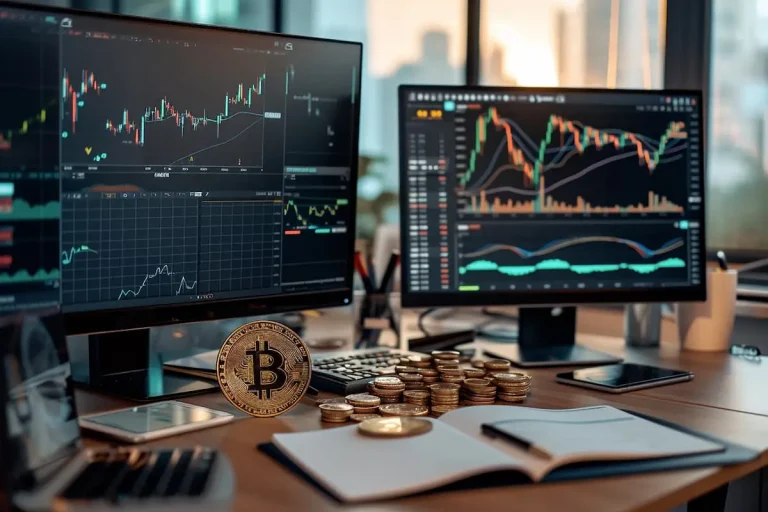What’s A Dealing Desk And How Does It Work In Finance?
This signifies that they do not take the opposite aspect of their clients’ trade as they merely hyperlink two parties together. Calling a foreign exchange broker a “broker” is a misnomer, which is outlined as a “wrong or inaccurate name or designation”. If you’ve began doing any of your individual research on which foreign exchange dealer to make use of, you’ve in all probability come throughout a bunch of terms and an alphabet soup of acronyms corresponding to DD, NDD, MM, STP, ECN, DMA, OTC, LP, and so forth. In doing so, they are ready to decrease risks by earning from the spread as an alternative of getting to take the alternative aspect of the client’s commerce themselves. In other words, they make a market by filling your purchase or sell orders with countertrades.
Aud/usd Rises Regardless Of Wall Road Selloff As Chinese Flooding Lifts Coal Costs

Moreover, some dealing desk brokers offer advanced trading platforms with extra user-friendly interfaces, further instruments, and academic assets that can assist new traders in navigating the forex market. The dealing desk forex broker makes money from the spread between the bid and ask costs. The unfold is the difference between the purchase and sell price of a forex pair. The dealing desk forex broker presents a set or variable spread to their shoppers. The mounted spread is a set amount of pips, while the variable unfold changes based on the market conditions.
They match two reverse trades placed by two market participants and make a bridge to join them. For traders in search of a sturdy, progressive, and safe trading experience, think about exploring the services of an ASIC regulated forex broker like Opofinance. Their complete suite of options is designed to meet the needs of both novice and advanced merchants. Another consideration for merchants is the minimal deposit requirement and account dimension for NDD brokers, notably ECN brokers. Since these brokers present access to a wider range of institutional-level liquidity, they often require larger account sizes or impose stricter criteria for traders. This could make NDD brokers much less accessible for smaller retail traders who might not meet these necessities.
Non-dealing desk brokers often provide variable spreads, which signifies that the spread changes based on https://www.xcritical.com/ market conditions. This may find yourself in tighter spreads than fastened spreads supplied by dealing desk brokers. A dealing desk broker is a kind of foreign exchange dealer that acts as a counterparty to their clients’ trades, executing the trades internally inside their system. They provide numerous trading situations, pricing, and transparency, which might range depending on the dealer. It’s important to carefully analysis and select a good dealing desk broker that’s regulated, reliable, and provides aggressive buying and selling circumstances.
In extremely liquid markets like main currency pairs, spreads may be as tight as 1-2 pips, while in less liquid markets, similar to rising market bonds, spreads can be significantly wider. Throughout durations of heightened uncertainty—such as economic announcements or geopolitical events—dealing desks might widen spreads to account for elevated worth fluctuations. Adjusting spreads dynamically helps steadiness competitive pricing with danger administration.

This can result in re-quotes, the place the dealer offers a unique price throughout fast-moving markets. This altering bid/ask quote can additionally be the reason why most STP kind brokers have variable spreads. If the spreads of their liquidity providers widen, they have no alternative but to widen their spreads too.
How Does A Dealing Desk Foreign Exchange Dealer Work?
- The exterior executions are carried out mostly on the interbank market which can handle any volume of trades, so slippage doesn’t happen.
- This is in distinction to variable spreads offered by NDD brokers, which can widen or slender based mostly on market volatility or liquidity.
- This implies that they take the opposite place of their clients’ trades, they usually generate income from the spread between the bid and ask costs.
- In this case, the consumer will receive the identical costs executed by the supplier.
The dealing desk forex broker then holds the position till the client closes their commerce. As the name signifies, No Dealing Desk (NDD) brokers do NOT pass their clients’ orders via a Dealing Desk. Instead, NDD forex brokers ship the buy and sell orders on to the foreign exchange market (via liquidity providers, banks, other brokers, etc). Choosing a foreign exchange broker might be a challenging task that requires you to determine what kind of dealer you need to trade with. Apart From the buying and selling platforms, buying and selling instruments, and threat administration tools offered by foreign exchange brokers, you also need to think about the kind of execution mannequin. Dealing Desk brokers, also referred to as Market Makers, create a marketplace for their shoppers by quoting each the bid and ask prices Proof of space for a foreign money pair.

These brokers take the other facet of their clients’ trades and act as a counterparty to every trade. Basically, they “make” the market by setting the costs at which merchants can purchase or promote, which implies they usually determine the unfold and liquidity obtainable to merchants. Dealing desk brokers resolve the bid and ask value that you will pay on a currency pair. This means that they will set any worth that they want whereas a non-dealing desk dealer may give you entry to the most effective prices on the forex market. NDD brokers have deep liquidity swimming pools which reduces slippage and makes certain your trades get executed as quick as potential. For merchants, the execution velocity with an NDD dealer may be quicker than that of dealing desk brokers, particularly for ECN brokers, who supply direct market access.
The Beginner’s Journey With A Dd Dealer
In the world of foreign exchange or trade execution, there are two kinds of fashions that you’ll most often come throughout. They could go by different names, but the bottom line is that the foreign exchange broker falls into one of the two categories. Trade stp broker conditions check with the circumstances under which trades are conducted on a broker’s platform. Trade circumstances embrace components as who the counterparty is, whether or not there’s a slippage/requote and the sort of trading platform you may be allowed to use.
As An Alternative, they pass the trades on to liquidity providers (LPs), similar to banks, financial institutions, or other liquidity swimming pools, for execution. The NDD dealer acts more as a mediator, ensuring that the client’s order is filled at the finest possible market value. This means the distinction between the bid and ask value is fixed, making it easier for traders to calculate buying and selling costs upfront. Nonetheless, these spreads may be wider than those supplied by NDD brokers, particularly during excessive market volatility.
Thus, in this aspect, the forex dealer isn’t really fascinated whether you win or lose, so lengthy as you make a gradual variety of trades. The ideas of a “dealing desk” and a “non-dealing desk” are usually used in reference to the sorts of brokerage fashions which might be used within the international forex market. Rather, it is a virtual market which is made up of a network of linked computers between all collaborating interests within the forex market. If you need to discover the benefits and downsides of these two kinds of brokers, the next lesson is for you. It is its transparency and entry to real-life info that makes it interesting to most forex traders. Some of what you read or hear about are most likely outdated, inaccurate, and even deceptive.
In phrases of spreads, NDD brokers sometimes provide variable spreads, which can fluctuate primarily based on market circumstances and the liquidity available at any given time. While which means traders may face wider spreads in periods of low volatility, NDD brokers typically provide extra competitive pricing throughout times of high liquidity. Dealing desk brokers typically offer fastened spreads, which signifies that the unfold remains the identical no matter market circumstances. Nonetheless, fixed spreads can be wider than variable spreads provided by non-dealing desk brokers. A dealing desk forex dealer is a sort of broker that acts as a market maker by making a marketplace for their shoppers. This signifies that they take the other place of their clients’ trades, they usually earn cash from the unfold between the bid and ask prices.
As Quickly As a commerce is initiated, it should move by way of several phases before finalization. The first step is trade validation, where the dealing desk confirms that every one order particulars align with inside policies and regulatory requirements. This includes verifying commerce dimension, counterparty eligibility, and compliance with danger limits. In abstract, both Dealing Desk and No Dealing Desk brokers have distinct features that cater to various sorts of merchants.